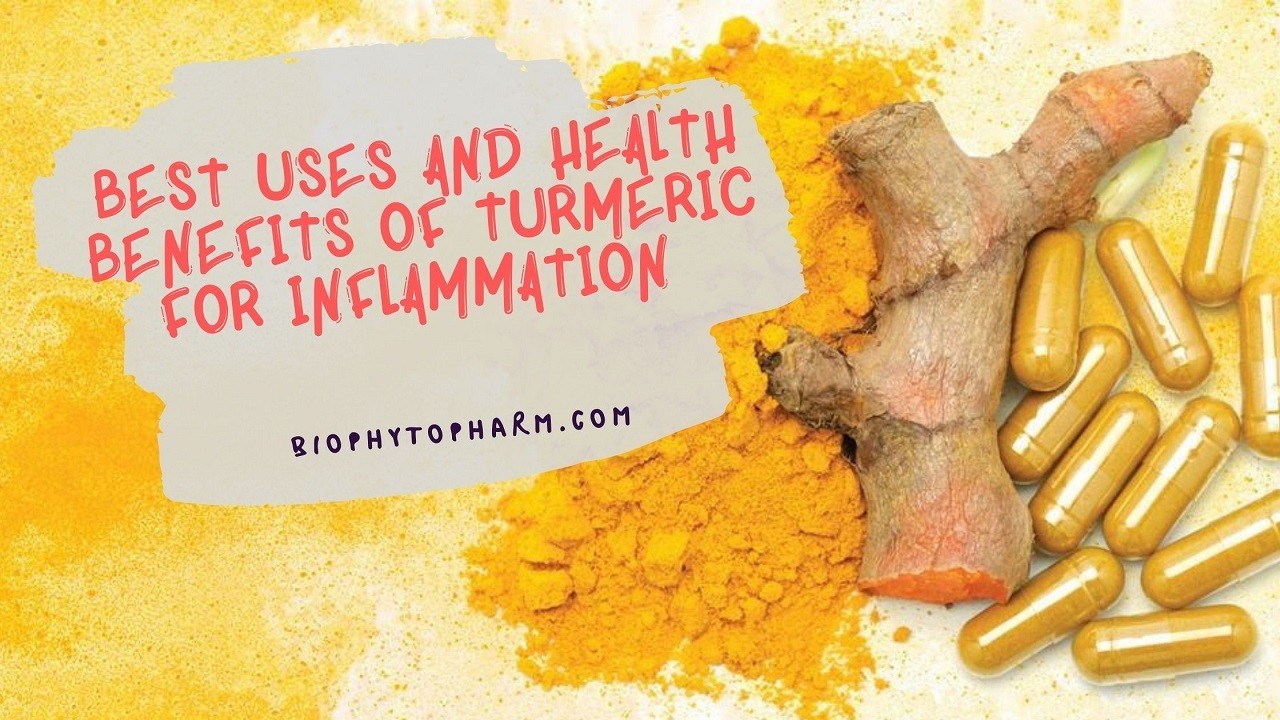Best Uses and Health Benefits of Turmeric for Inflammation

Turmeric is a spice that has been used in traditional medicine for centuries. It is a staple in Indian cuisine and has gained popularity in recent years for its health benefits. Turmeric contains a compound called curcumin, which has been found to have powerful anti-inflammatory effects on the body. In this article, we will explore the health benefits of turmeric for inflammation.
What is inflammation? Inflammation is a natural response of the body’s immune system to injury, infection, or irritation. It is a complex process that involves the release of chemicals, such as cytokines, by immune cells to protect the body and help with healing. However, when inflammation becomes chronic, it can lead to a range of health problems, including autoimmune disorders, heart disease, and cancer.
How does turmeric help with inflammation? Turmeric contains a compound called curcumin, which has been found to have anti-inflammatory properties. Curcumin works by blocking the activity of enzymes that are involved in inflammation. It also helps to reduce the production of cytokines, which are chemicals that contribute to inflammation in the body.
Studies have shown that curcumin can be as effective as some anti-inflammatory drugs, without the side effects. In fact, a study published in the Journal of Alternative and Complementary Medicine found that curcumin was more effective than a placebo in reducing pain and inflammation in people with osteoarthritis.
Other health benefits of turmeric In addition to its anti-inflammatory properties, turmeric has a range of other health benefits. Here are some of them:
Antioxidant properties: Curcumin is a powerful antioxidant, which means it can help to protect the body from damage caused by free radicals. Free radicals are unstable molecules that can damage cells and contribute to the development of chronic diseases.
Brain health: Curcumin has been found to have neuroprotective properties, which means it can help to protect the brain from damage and reduce the risk of cognitive decline. Studies have shown that curcumin may be helpful in the prevention and treatment of Alzheimer’s disease.
Heart health: Curcumin has been found to have a range of benefits for heart health. It can help to improve the function of the endothelium, which is the lining of the blood vessels. This can help to reduce the risk of heart disease.
Cancer prevention: Curcumin has been found to have anti-cancer properties. It can help to prevent the growth and spread of cancer cells and may be useful in the prevention and treatment of a range of different types of cancer.
Digestive health: Turmeric has been used for centuries in traditional medicine to help with digestive problems. It can help to reduce inflammation in the gut and may be useful in the treatment of conditions such as inflammatory bowel disease.
How to incorporate turmeric into your diet Turmeric is a versatile spice that can be used in a range of different dishes. Here are some ideas for incorporating turmeric into your diet:
- Add it to rice or quinoa for extra flavor and color.
- Use it to season roasted vegetables.
- Add it to soups and stews for a warm and spicy flavor.
- Use it to season chicken or fish.
- Make turmeric tea by simmering turmeric in water and adding honey and lemon for flavor.
FAQs
Can turmeric be used to treat arthritis? Yes, turmeric has been found to be helpful in reducing pain and inflammation in people with arthritis. It may be useful in combination with other treatments.
Is it safe to take turmeric supplements? Turmeric supplements are generally safe for most people. However, they can interact with some medications, so it is important to speak with a healthcare provider before taking them.
In conclusion, turmeric is a powerful anti-inflammatory agent that has been used for centuries in traditional medicine. The active ingredient, curcumin, has been found to reduce inflammation and associated pain in a number of studies. Turmeric’s anti-inflammatory properties have been shown to be effective in treating a variety of conditions, including arthritis, inflammatory bowel disease, and even cancer.
Additionally, turmeric is an affordable and natural alternative to pharmaceutical anti-inflammatory drugs, which often have harmful side effects. It can be consumed in a variety of forms, including fresh, ground, or as a supplement.
However, it is important to note that turmeric should not be used as a replacement for medical treatment or medication. Individuals with certain health conditions, such as gallbladder disease, should also exercise caution when using turmeric.
Overall, incorporating turmeric into one’s diet can have numerous health benefits and may help to alleviate inflammation and associated symptoms. As always, it is best to consult with a healthcare professional before starting any new dietary regimen.




